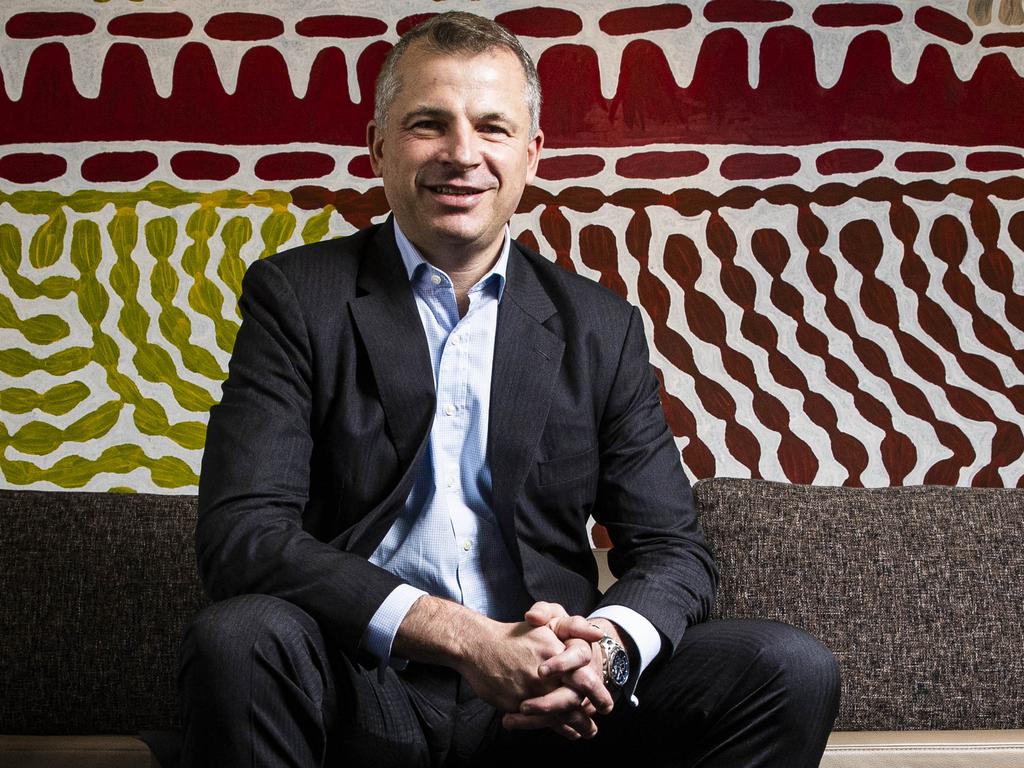Men fear irrelevance in workplace as office skews to women
Modern leadership favours more feminine traits, and men are feeling the change, according to an executive coach and people development expert.

The tectonic plates are shifting under a generation of white, middle-aged men, and they’re scared, says Tom Harkin, an executive coach and people development expert.
“The recipe for corporate success is more skewed to the feminine traits rather than the masculine traits that we are breeding in our boys and men,” he says. “A lot of middle-aged men have a real fear of irrelevance – and there’s some validity to that.”
Young boys are seeing the shift, too, but their focus is not on work but around the feeling that “to be a man is ‘out’, where do I fit, where am I going to find my place?”.
Harkin runs two organisations that give him a clear look at the way we socialise men and how it needs to change in a more complex work.
One, Tomorrow Architects, is a consultancy working in the C-suite on behavioural change, leadership development and organisational transformation. His other project is Tomorrow Man, set up with his partner as a social enterprise working with men and boys “to reinvent masculinity by challenging traditional stereotypes and training emotional muscle”. The couple also run a parallel organisation, Tomorrow Woman.
Harkin’s corporate work has revealed that while many men aged 20 to 30 are “up for a change”, older men often feel they have “missed the boat” as they realise their concept of heroic leaders who know the answers, disseminate them and make sure people carry out instructions no longer is required.
“They start to freak out when we talk about collaborative environments that are rich in psychological safety and are incredibly diverse,” he says. “(They think:) ‘It is a completely different skill set to how I have grown up for the last 40 to 50 years.’ ”
He says Covid has pushed power back to the employees, especially women, who now demand a different workplace – less hierarchical, more meaningful, more fit for purpose. All these elements are geared to naturally feminine traits.
Harkins says the complexity of work has been increasing for some time but has accelerated during the pandemic. We now need a more complex way of expressing gender traits.
“Men should not have to be only masculine, in charge, solid and stoic, and women should not only need to be understanding, collaborative and empathetic,” he says. “They can also have teeth. Everyone needs to have access to the capabilities in the modern workplace – not just half of them.”

He says because of Covid there has been an urgency around changing work, an opportunity for genuine transformation at all levels. But the risk is that companies will make a lot of fast technical changes without fundamentally questioning the paradigm of work and life.
“What are our beliefs around productivity and its relationship to power?” he says. “Do you need to watch over the top of people physically to guarantee productivity and output?”
The old hierarchical model with worker bees following instructions is not complex enough to solve contemporary problems: “We need the collective brain of the hive. It’s a different model in which everyone has to think for themselves.”
The move to a collective approach is challenging. “A lot of leaders will say: ‘I want to hear from my people’, but to sit in the cyclone of unfiltered opinions of your people is really disturbing and you need a level of emotional intelligence not to act on your emotions,” Harkin says. “You just have to hold and say, there must be truth in this about the way work should be done and I need to let it permeate …
“Psychological safety is a buzz word, but to create genuine psychological safety means that you are uncorking the forces of your employees’point of view. That is going to create genuine friction, which is the gold of breakthrough innovation, but if I don’t have the emotional muscle for it when I turn it on, I am likely to want to eradicate it straight away.”
He says the workforce coming through has grown up as contributors and they are not interested in waiting 20 years before contributing to the companies they join.
“When you think of the generation of 30 or 40 years ago, it was a generation that grew up lauding the expert because they grew up consuming one-way information and their level of output content was very low,” he says.
“This generation is growing up digitally native and they have had tools in their hands from four or five where they are creating content. At five or six you can get access to the world, you can put out your artwork to the world.
“When they enter the workforce they meet a different situation: ‘You are saying I can’t contribute to this organisation? You must be dreaming. I have been contributing content for six years.’
“There’s a generation coming of age and they are stepping into organisations and saying, ‘This is archaic and I don’t want to play a part in this organisation.’ Five years ago, the rhetoric from organisations was that this new generation didn’t know how to work, they didn’t have a work ethic, they are distractible. That is a denial of a new way of working for a new generation that has grown up in the soup that your organisation is swimming in.”
You can hear more from Tom Harkin and other speakers on Hybrid Work | The Belonging Imperative, a TEDxSydney online event sponsored by Microsoft.








To join the conversation, please log in. Don't have an account? Register
Join the conversation, you are commenting as Logout